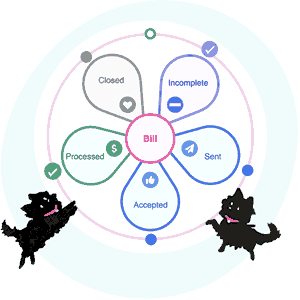CA Governor Vetoes UR Bill

California Governor Gavin Newsom vetoed California Senate Bill 636, which would have required that Utilization Review (UR) for private employers be conducted only by California-licensed physicians.
UR is the process by which claims administrators decide whether or not to authorize the care recommended by an injured worker’s treating physician. Currently, claims administrators may employ physicians licensed in any state to deny or modify treatment requests.
Proponents of the bill, including labor representatives and physician groups, argued that UR physicians should be accountable to the California Medical Board. Without such accountability, improper denials of medically necessary care will continue to be commonplace and consequence-free.
Opponents of the bill countered that standards of care are similar in every state and that shrinking the pool of eligible UR physicians would create backlogs. Moreover, the bill would impose a particular burden on private employers while public employers would be allowed to maintain the status quo.
Clearly, Governor Newsom is not aware of the dire state of UR in California or of the suffering endured by injured workers as a result of this insufficiently governed system.
With zero accountability for claims administrators and Utilization Review Organizations (UROs) under the feckless Division of Workers’ Compensation (DWC), injured workers face needless delays and denials of necessary care—and employers face higher costs and extended claim durations.
SB 636: Dead on Arrival
SB 636 would have amended California Labor Code Section 4610 to specify that a UR physician who modifies or delays a treating physician’s recommended care must be “licensed pursuant to California law,” in addition to being qualified to address the worker’s specific injury.
In a letter to the State Senate vetoing the bill, Governor Newsom cited a lack of evidence that UR is as broken as the bill’s sponsors claim, writing (emphasis ours):
“While I appreciate the author's intent to increase accountability in the UR process, I am concerned about the lack of data to warrant the changes proposed by this bill. Existing workers' compensation law already provides a regulatory structure that holds utilization review organizations and their utilization reviewers accountable for their decisions.”
We would propose that if the Governor wishes to see data illustrating the state of UR in California workers’ comp, he should consider the following:
- The largest Third-Party Administrator (TPA) in the state, Sedgwick Claims Management Services, advertises to potential clients that their URO denies 54% of requested treatments, resulting in a 5:1 “return on investment.” This claim remains on Sedgwick’s website as of this writing.
-
The Workers’ Compensation Insurance Rating Bureau (WCIRB) calculates that claims in California take twice as long to close and cost twice as much in administrative expenses (like UR) compared to the national medians.
The Governor is right about one thing, however: there is a glaring “lack of data” on UR in California—because the DWC has ignored state law for 8 years, refusing to establish a means by which to collect UR data as mandated by state legislators.
CA UR Won’t Fix Itself
We have seen and reported on enough horror stories involving injured workers denied necessary care, UROs playing games of “phone tag” with treating physicians as a pretext for denying care based on lack of information, and other ugly UR abuses to know that claims administrators fear no consequences.
Worse, there is little recourse for injured workers affected by the UR system’s failures. Appealing UR decisions by requesting Independent Medical Review has a lower chance of success than buying a lottery ticket and hoping to win enough to cover their own treatment.
In fact, the DWC openly instructs injured workers to pay for their own treatment initially if the claims administrator won’t. Does this seem like a system not in need of reform?
All available evidence indicates that something is deeply amiss with the way UR is conducted by claims administrators in California.
Concerns about public/private employer equity and potential backlogs are rational, but they’re no reason to continue allowing claims administrators to establish nationwide “No Machines” where a UR physician in Kentucky can overrule a treating physician in San Bernardino with a boilerplate UR form letter.
There is indeed “a regulatory structure that holds utilization review organizations and their utilization reviewers accountable for their decisions” in California. Unfortunately, the DWC is charged with enforcing that regulatory structure—and has gallingly declined to do so.
The Governor should demand that the DWC adhere to California law and collect actionable UR data that can better inform critical decisions like this unfortunate veto.
Submit RFAs in 30 seconds and automatically track UR decisions with daisyAuth. Request a demo below!
REQUEST DEMO
DaisyBill provides content as an insightful service to its readers and clients. It does not offer legal advice and cannot guarantee the accuracy or suitability of its content for a particular purpose.





.gif)
MEDEX has always ensured that our UR reviewers assessing requests in California are licensed in California. It’s important to have as much oversight as possible.